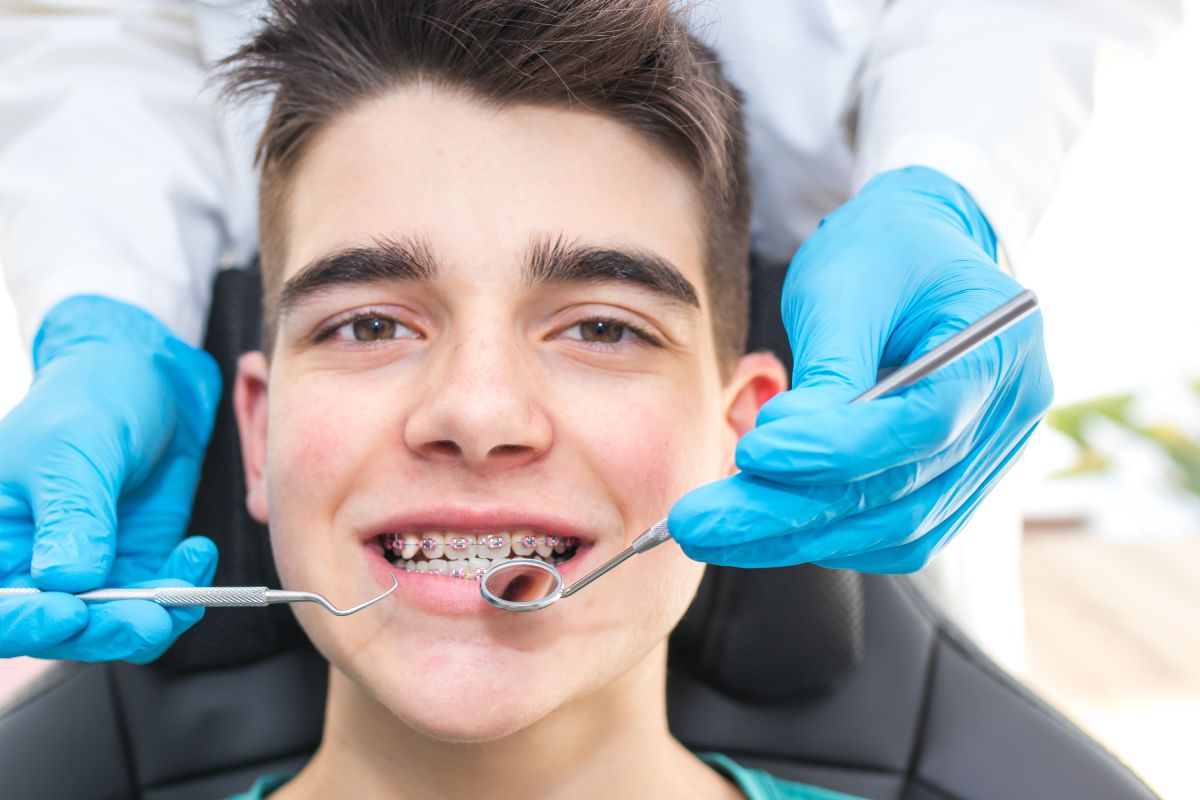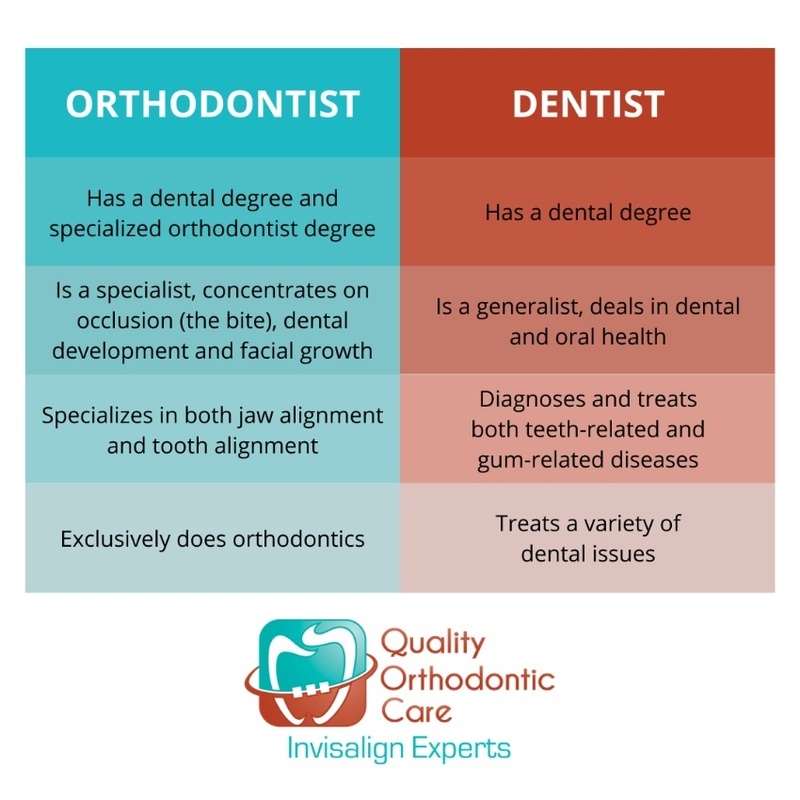Causey Orthodontics Fundamentals Explained
What Does Causey Orthodontics Mean?
Table of ContentsHow Causey Orthodontics can Save You Time, Stress, and Money.Getting The Causey Orthodontics To WorkLittle Known Questions About Causey Orthodontics.Not known Details About Causey Orthodontics Causey Orthodontics Can Be Fun For EveryoneThe Ultimate Guide To Causey OrthodonticsThe Basic Principles Of Causey Orthodontics
What is the difference between a dental expert and an orthodontist? All dental professionals, including orthodontists, treat the teeth, gums, jaw and nerves.
You can think of both doctors who deal with gum tissue and teeth problems. The major difference is that coming to be an orthodontist requires a specific specialty in dealing with the imbalance of the teeth and jaw.
The Best Guide To Causey Orthodontics
An orthodontist is a dental expert that has actually gone through training to concentrate on the diagnosis, avoidance and therapy of abnormalities in the jaw and teeth. Their training includes dealing with these existing conditions. They can likewise recognize potential problems in teeth positioning that may establish when conditions are left without treatment. Orthodontists can aid people of all ages.
This consists of all the needed education and learning to end up being a general dentist. According to the American Student Dental Organization (ASDA), it indicates you will require to have either a Medical professional of Medication in Dentistry (DMD) or a Doctor of Dental Surgical Procedure (DDS). Simply put, orthodontists need to finish dental institution and afterwards obtain an orthodontics specialized education.
Some orthodontists also get their masters in craniofacial biology. These programs concentrate on two specific locations or techniques: Dentofacial Orthopedics: This research study focuses on directing teeth and jaw development.
The Basic Principles Of Causey Orthodontics

 These include device such as dental braces, retainers and Invisalign. So, what does an orthodontist do, and what do they concentrate on? The general goal of an orthodontist is to enhance an individual's bite. Not everybody is birthed with straight teeth, and an orthodontist will certainly ensure that patients get uniformly spaced straight teeth.
These include device such as dental braces, retainers and Invisalign. So, what does an orthodontist do, and what do they concentrate on? The general goal of an orthodontist is to enhance an individual's bite. Not everybody is birthed with straight teeth, and an orthodontist will certainly ensure that patients get uniformly spaced straight teeth.
Not known Facts About Causey Orthodontics
The American Association of Orthodontists recommends your very first check up by age 7. You'll require to see your orthodontist if you have a misalignment in your teeth, also understood as malocclusion. Also, if you discover uneven bite patterns, a slightly irregular jaw, or when your teeth are overcrowded, you will likely need orthodontic therapy.
In enhancement, we offer adjustable therapy timetables, adaptable payment choices and a fun, enjoyable experience.
An orthodontist is a dental practitioner educated to diagnose, stop, and treat teeth and jaw irregularities. They correct existing conditions and are educated to identify problems that might establish in the future. Orthodontists function with individuals of any ages, from kids to grownups. People often connect a perfect smile with health.
Excitement About Causey Orthodontics
Malocclusion, or misaligned teeth, can bring about dental issues, including dental caries, gum tissue disease, and tough or unpleasant eating. But not everybody is birthed with straight teeth. If you have a bad bite or big areas in between your teeth, you might want to get in touch with a dental professional concentrating on orthodontic care.
(Photo Credit: DigitalVision/Getty Images) Orthodontists use fixed and removable dental tools, like braces, retainers, and bands, to transform the placement of teeth in your mouth. Orthodontic therapy is for oral irregularities, including: Uneven teethBite issues, like an overbite or an underbiteCrowded teeth or teeth that are too far apartJaw misalignmentThe objective of orthodontic treatment is to improve your bite.
Not known Details About Causey Orthodontics

All orthodontists are dental professionals, but not all dental professionals are orthodontists. Orthodontic residency programs use intensive, concentrated guideline for oral experts. They focus on two areas: How to properly and safely move teeth How to correctly direct development in the teeth, jaw, and faceOnce an orthodontist has completed training, they have the choice to end up being board licensed.
Misalignment, or malocclusion, is one of the most common factor individuals see an orthodontist. It is hereditary and is the result of size differences between the top and lower jaw or between the jaw and teeth. orthodontist expert. Malocclusion causes tooth congestion, a misshapen jaw, or uneven bite patterns. Malocclusion is typically treated with: Your orthodontist affixes metal, ceramic, or plastic square bonds to your teeth.
Top Guidelines Of Causey Orthodontics
If you have only small malocclusion, you might have the ability to use clear braces, called aligners, rather than traditional dental braces. Some individuals require a headwear to aid move teeth into line with stress from outside the mouth. After dental braces or aligners, you'll require to put on a retainer. A retainer is a customized device that keeps your teeth in location.